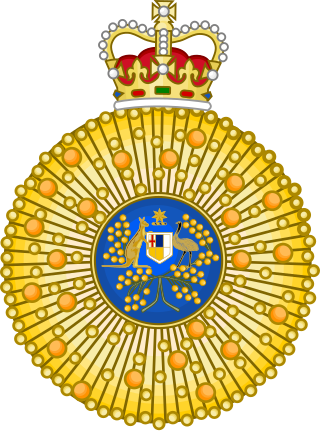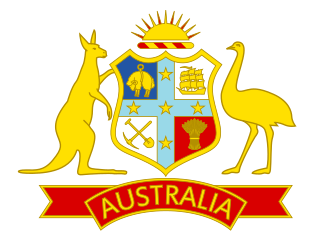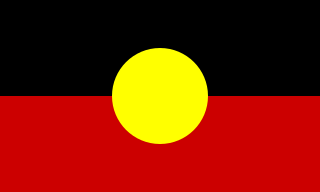| Personal information | |||
|---|---|---|---|
| Full name | Norman Tome | ||
| Date of birth | 20 March 1973 | ||
| Place of birth | Australia | ||
| Position(s) | striker | ||
| Senior career* | |||
| Years | Team | Apps | (Gls) |
| 1992 | Dulwich Hill | ||
| 1993–1994 | Bonnyrigg White Eagles | 41 | (18) |
| 1993–2000 | Sydney Olympic | 172 | (53) |
| 2000–2002 | Marconi Stallions | 39 | (6) |
| 2002–2003 | Bankstown City Lions | 7 | (1) |
| 2002–2005 | A.P.I.A. Leichhardt Tigers | 35 | (12) |
| 2005–2010 | Dulwich Hill | ||
| *Club domestic league appearances and goals, correct as of 13 August 2007 | |||
Norman Tome (born 20 March 1973) is an Australian soccer player who represented Australia at the 1996 Atlanta Olympics.

The Ashes is a Test cricket series played between England and Australia. The term originated in a satirical obituary published in a British newspaper, The Sporting Times, immediately after Australia's 1882 victory at The Oval, its first Test win on English soil. The obituary stated that English cricket had died, and that "the body will be cremated and the ashes taken to Australia". The mythical ashes immediately became associated with the 1882–83 series played in Australia, before which the English captain Ivo Bligh had vowed to "regain those ashes". The English media therefore dubbed the tour the quest to regain the Ashes.

Adelaide is the capital city of South Australia, the state's largest city and the fifth-most populous city in Australia. "Adelaide" may refer to either Greater Adelaide or the Adelaide city centre. The demonym Adelaidean is used to denote the city and the residents of Adelaide. The Traditional Owners of the Adelaide region are the Kaurna people. The area of the city centre and surrounding Park Lands is called Tarndanya in the Kaurna language.

New South Wales is a state on the east coast of Australia. It borders Queensland to the north, Victoria to the south, and South Australia to the west. Its coast borders the Coral and Tasman Seas to the east. The Australian Capital Territory and Jervis Bay Territory are enclaves within the state. New South Wales' state capital is Sydney, which is also Australia's most populous city. In December 2021, the population of New South Wales was over 8 million, making it Australia's most populous state. Just under two-thirds of the state's population, 5.3 million, live in the Greater Sydney area.

Oceania is a geographical region that is described as a continent in some parts of the world. It includes Australasia, Melanesia, Micronesia, and Polynesia. Spanning the Eastern and Western Hemispheres, Oceania is estimated to have a land area of 8,525,989 square kilometres (3,291,903 sq mi) and a population of around 44.4 million as of 2022. Oceania is described as a geographical region in most of the English-speaking world, but outside of the English-speaking world, Oceania is described as one of the continents. In this model of the world, Australia is only seen as an island nation contained inside of the continent of Oceania, and not a continent by itself. When compared to the other continents, Oceania is the smallest in land area and the second least populated after Antarctica.

Perth is the capital and largest city of the Australian state of Western Australia. It is the fourth most populous city in Australia and Oceania, with a population of 2.1 million living in Greater Perth in 2020. Perth is part of the South West Land Division of Western Australia, with most of the metropolitan area on the Swan Coastal Plain between the Indian Ocean and the Darling Scarp. The city has expanded outward from the original British settlements on the Swan River, upon which the city's central business district and port of Fremantle are situated. Perth is located on the traditional lands of the Whadjuk Noongar people, where Aboriginal Australians have lived for at least 45,000 years.

Sydney is the capital city of the state of New South Wales, and the most populous city in Australia. Located on Australia's east coast, the metropolis surrounds Sydney Harbour and extends about 70 km (43.5 mi) towards the Blue Mountains to the west, Hawkesbury to the north, the Royal National Park and Macarthur to the south and south-west. Greater Sydney consists of 658 suburbs, spread across 33 local government areas. Residents of the city are colloquially known as "Sydneysiders". The estimated population on June 2022 was 5,297,089; the city is home to approximately 66% of the state's population. Notable nicknames of the city include the "Emerald City" and the "Harbour City".

Western Australia is a state of Australia occupying the western 33 percent of the land area of Australia, excluding external territories. It is bounded by the Indian Ocean to the north and west, the Southern Ocean to the south, the Northern Territory to the north-east, and South Australia to the south-east. Western Australia is Australia's largest state, with a total land area of 2,527,013 square kilometres (975,685 sq mi). It is the second-largest country subdivision in the world, surpassed only by Russia's Sakha Republic. As of 2021, the state has 2.76 million inhabitants—11 percent of the national total. The vast majority live in the south-west corner; 79 percent of the population lives in the Perth area, leaving the remainder of the state sparsely populated.

Canberra is the capital city of Australia. Founded following the federation of the colonies of Australia as the seat of government for the new nation, it is Australia's largest inland city and the eighth-largest Australian city overall. The city is located at the northern end of the Australian Capital Territory at the northern tip of the Australian Alps, the country's highest mountain range. As of June 2022, Canberra's estimated population was 456,692.

Queensland is a state situated in northeastern Australia, and is the second-largest and third-most populous of the Australian states. It is bordered by the Northern Territory, South Australia and New South Wales to the west, southwest and south respectively. To the east, Queensland is bordered by the Coral Sea and the Pacific Ocean; to its north is the Torres Strait, separating the Australian mainland from Papua New Guinea. With an area of 1,852,642 square kilometres (715,309 sq mi), Queensland is the world's sixth-largest sub-national entity; it is larger than all but 15 countries. Due to its size, Queensland's geographical features and climates are diverse, including tropical rainforests, rivers, coral reefs, mountain ranges and sandy beaches in its tropical and sub-tropical coastal regions, as well as deserts and savanna in the semi-arid and desert climatic regions of its interior.

The Order of Australia is an honour that recognises Australian citizens and other persons for outstanding achievement and service. It was established on 14 February 1975 by Elizabeth II, Queen of Australia, on the advice of the Australian Government. Before the establishment of the order, Australian citizens received British honours.

The Australia men's national cricket team represents Australia in men's international cricket. As the joint oldest team in Test cricket history, playing in the first ever Test match in 1877, the team also plays One-Day International (ODI) and Twenty20 International (T20I) cricket, participating in both the first ODI, against England in the 1970–71 season and the first T20I, against New Zealand in the 2004–05 season, winning both games. The team draws its players from teams playing in the Australian domestic competitions – the Sheffield Shield, the Australian domestic limited-overs cricket tournament and the Big Bash League.

Aboriginal Australians are the various First Nations peoples of the Australian mainland and many of its islands, such as the peoples of Tasmania, Fraser Island, Hinchinbrook Island, the Tiwi Islands and Groote Eylandt, but excluding the ethnically distinct Torres Strait Islands. The term Indigenous Australians refers to Aboriginal Australians and Torres Strait Islanders collectively.

The states and territories are administrative divisions in Australia, ruled by regional governments that constitute the level of governance between the federal government and local governments. States are self-governing polities with incomplete sovereignty and their own constitutions, legislatures, departments, and certain civil authorities that administer and deliver most public policies and programs. Territories can be autonomous and administer local policies and programs much like the states in practice, but are still constitutionally and financially subordinate to the federal government and thus have no true sovereignty.

Australia, officially the Commonwealth of Australia, is a sovereign country comprising the mainland of the Australian continent, the island of Tasmania, and numerous smaller islands. Australia is the largest country by area in Oceania and the world's sixth-largest country. Australia is the oldest, flattest, and driest inhabited continent, with the least fertile soils. It is a megadiverse country, and its size gives it a wide variety of landscapes and climates, with deserts in the centre, tropical rainforests in the north-east, tropical savannas in the north, and mountain ranges in the south-east.

The Australia men's national soccer team represents Australia in international men's soccer. Officially nicknamed the Socceroos, the team is controlled by the governing body for soccer in Australia, Football Australia, which is affiliated with the Asian Football Confederation (AFC) and the regional ASEAN Football Federation (AFF).

Stephen Robert Irwin, known as "The Crocodile Hunter", was an Australian zookeeper, conservationist, television personality, wildlife educator, and environmentalist.

Steven Peter Devereux Smith is an Australian international cricketer and former captain of the Australian national team. Widely regarded as the greatest test batsman of the modern era, as well as one of the greatest in the history of the sport, Smith has drawn comparisons to Don Bradman, for his distinctively high Test batting average, being labelled 'the best since Bradman'. Smith was a member of the Australian team that won the 2015 Cricket World Cup, the 2021 ICC T20 World Cup, and the 2023 ICC World Test Championship final.

Melbourne is the capital of the Australian state of Victoria, and the second-most populous city in Australia. Its name generally refers to a 9,993 km2 (3,858 sq mi) metropolitan area known as Greater Melbourne, comprising an urban agglomeration of 31 local municipalities, although the name is also used specifically for the local municipality of City of Melbourne based around its central business area. The metropolis occupies much of the northern and eastern coastlines of Port Phillip Bay and spreads into the Mornington Peninsula, part of West Gippsland, as well as the hinterlands towards the Yarra Valley, the Dandenong and Macedon Ranges. It has a population over 5 million, mostly residing to the east side of the city centre, and its inhabitants are commonly referred to as "Melburnians".

Shane Keith Warne was an Australian international cricketer whose career ran from 1992 to 2007. Warne played as a right-arm leg spin bowler and a right-handed batsman for Victoria, Hampshire and Australia. Considered to be one of the greatest bowlers in the history of the sport, he made 145 Test appearances, taking 708 wickets, and set the record for the most wickets taken by any bowler in Test cricket, a record he held until 2007. Warne was a member of the Australian team that won the 1999 Cricket World Cup.

The 2023 FIFA Women's World Cup will be the ninth edition of the FIFA Women's World Cup, the quadrennial international football (soccer) championship contested by women's national teams and organised by FIFA. The tournament will be jointly hosted by Australia and New Zealand, and is scheduled to take place from 20 July to 20 August 2023. It will be the first FIFA Women's World Cup to have more than one host nation, and also the first senior World Cup to be held across multiple confederations, as Australia is in the Asian Confederation, while New Zealand is in the Oceanian Confederation. In addition, this tournament will be the first to feature the expanded format of 32 teams from the previous 24, replicating the same format used for the men's World Cup from 1998 to 2022.